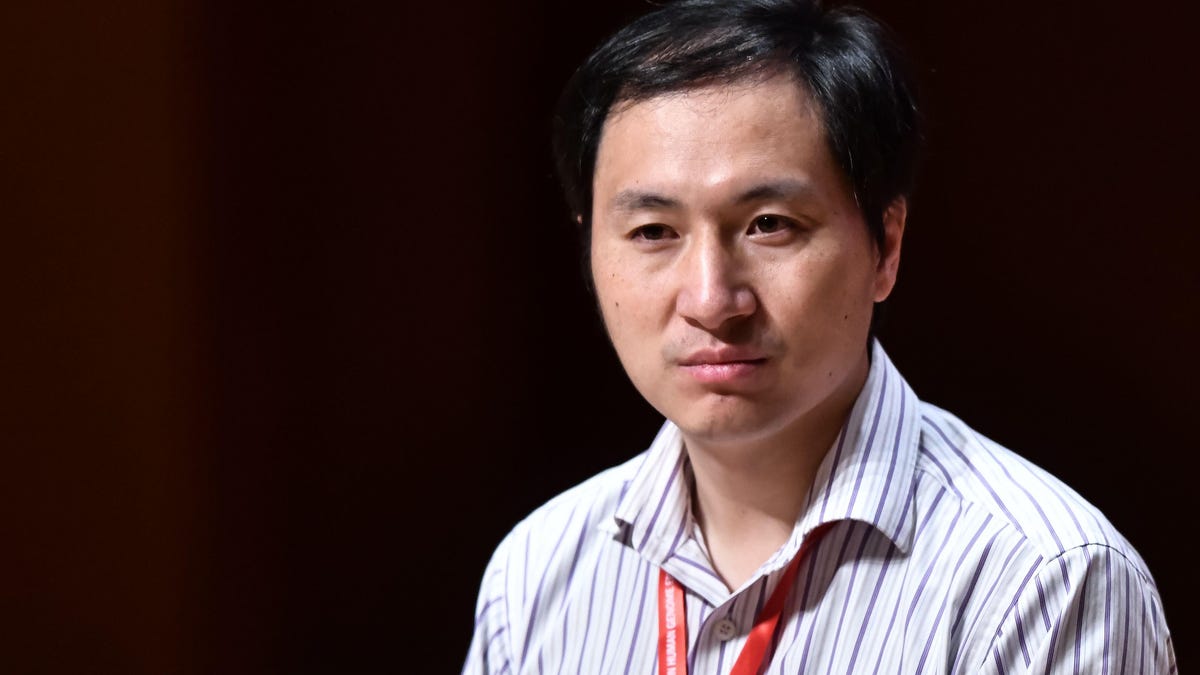CRISPR scientist who made gene-edited babies sentenced to 3 years in prison
He Jiankui was reportedly convicted of conducting an "illegal medical practice."

He Jiankui gave a presentation last year on successfully creating the world's first gene-edited babies.
The scientist who claimed to have created the first gene-edited human babies was fined around $430,000 and sentenced to three years in prison by a Chinese court on Monday, according to Chinese state media. He Jiankui was reportedly convicted of conducting an "illegal medical practice."
A court in Shenzhen reportedly found He, along with two colleagues, violated Chinese regulations and ethics by editing twin embryos' DNA. Authorities also found his team fabricated regulatory paperwork, according to state news agency Xinhua. He and his colleagues reportedly pleaded guilty to the charges.
He was condemned by the scientific community for using the gene-editing technology CRISPR to alter the gene CCR5, which HIV utilizes when infecting humans. CRISPR/Cas9 is a technology that can "cut and paste" genes, allowing for the removal and replacement of sections of DNA. The goal of his research was to make the twin girls immune to HIV.
Experts soon concluded He's methods were unethical and scientifically flawed. In a paper published earlier this year, two authors found that gene editing embryos isn't necessary for preventing HIV transmission to the fetus, and it doesn't benefit the babies. They also called He's data "absurd," and said the quality of the science is "very poor and superficial." They called for "the authorities conduct a thorough examination of all the original data and disclose the facts to the scientific community and general public."
He's work was quickly suspended after he gave his presentation on gene-editing the babies at the Second International Summit on Human Genome Editing in November 2018.

